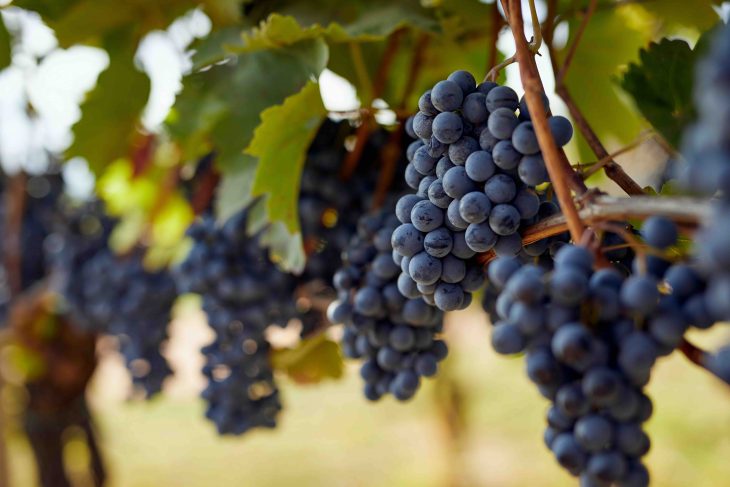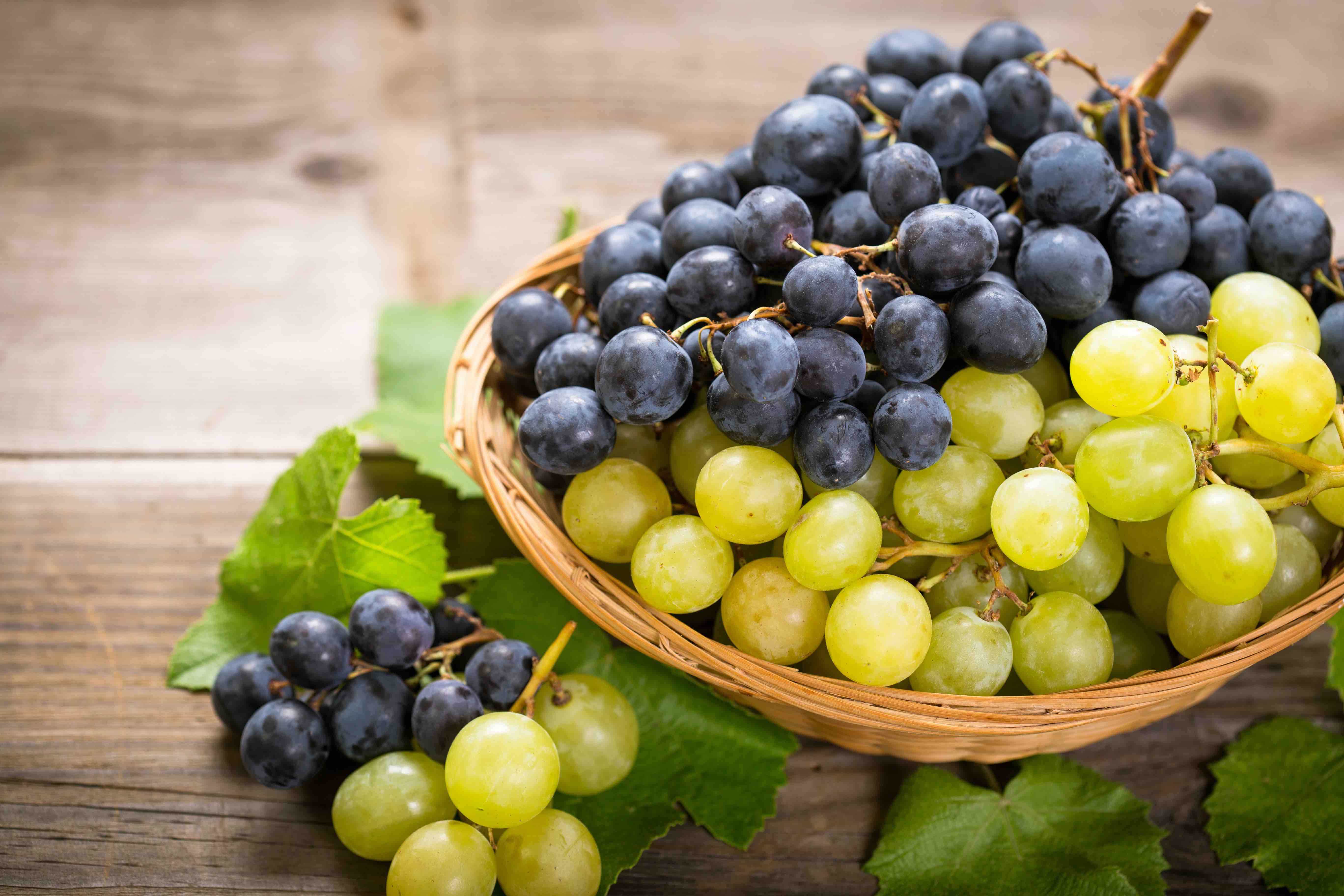
Grapes are a beloved fruit enjoyed by people around the world. With their luscious sweetness and refreshing juiciness, grapes have become a staple in various cuisines and a popular snack option. But there’s more to grapes than meets the eye. In this article, we will delve into 20 fun facts about grapes, unraveling their rich history, health benefits, and culinary versatility. Join us on this flavorful journey as we explore the fascinating world of grapes and discover why they have captivated our taste buds for centuries.
Ancient Origins
Grapes have been cultivated for thousands of years, with evidence of their consumption dating back to ancient civilizations such as the Egyptians, Greeks, and Romans. These ancient cultures recognized the value of grapes and used them for both culinary and medicinal purposes.
Vast Variety
There are thousands of grape varieties grown worldwide, each with its unique characteristics and flavors. From the familiar green and red varieties to lesser-known colors like black, purple, and golden, grapes offer a diverse range of tastes and textures.
Healthful Nutrients
Grapes are packed with nutrients and antioxidants, making them a healthy addition to your diet. They contain vitamins C and K, potassium, and resveratrol—a powerful antioxidant associated with various health benefits.
A Bountiful Harvest
Grapes are among the most widely cultivated fruits globally. Major grape-producing countries include Italy, Spain, the United States, China, and France. These regions benefit from favorable climates and rich soil that contribute to abundant grape harvests.
Versatility in Winemaking

Grapes play a crucial role in winemaking. Different grape varieties are used to produce various styles of wine, including red, white, rosé, and sparkling. The flavors, aromas, and characteristics of wine can be greatly influenced by the type of grape used.
Seedless Wonders
Seedless grapes are a popular choice for their convenience and ease of consumption. They are the result of careful cultivation and breeding to eliminate or reduce the number of seeds. Seedless grape varieties have become favorites for snacking and culinary purposes.
Grapevine Treasures
Grapevines are often treasured for their beauty and symbolic value. They have been cultivated for ornamental purposes in gardens and vineyards, adding a touch of elegance and charm to landscapes around the world.
Sweetness in Different Forms
Grapes are not only enjoyed fresh; they are also transformed into various delicious forms. Grape juice, raisins, grape jelly, and wine are just a few examples of the diverse culinary possibilities that grapes offer.
A Grape for Every Occasion
From casual snacking to sophisticated wine pairing, grapes are suitable for any occasion. Their versatility allows them to be enjoyed in both sweet and savory dishes, adding a burst of flavor and texture.
Wine’s Best Friends
Grapes have a natural affinity for cheese, and the combination of the two is a culinary delight. Wine and cheese pairings often include grapes to provide a refreshing contrast and balance to the richness of the cheese.
Symbol of Abundance and Prosperity
In various cultures, grapes symbolize abundance, prosperity, and good fortune. They are often associated with harvest festivals and celebrations, representing a bountiful yield and the rewards of hard work.
Aromatic Delights
Certain grape varieties, such as Muscat grapes, are highly aromatic. Their distinct fragrances and flavors contribute to the production of dessert wines and enhance the sensory experience of enjoying grapes.
Juicy Hydration
Grapes have a high water content, making them an excellent choice for staying hydrated. Enjoying a handful of grapes can help quench your thirst and provide a juicy burst of refreshment.
The Art of Grape Growing
Grape cultivation is an art that requires expertise and care. The process involves selecting the right vineyard locations, tending to the vines throughout the seasons, and carefully harvesting the ripe clusters to ensure the best quality grapes.
Wine and Health
Moderate wine consumption, particularly red wine made from grapes, has been associated with potential health benefits. Red wine contains resveratrol, which is believed to have antioxidant properties and may contribute to heart health.
Vineyard Scenic Beauty
Vineyards, with their orderly rows of grapevines and picturesque landscapes, offer breathtaking views. They attract visitors seeking not only the taste of wine but also the visual pleasure of wandering through vine-covered hills.
Grape Varieties for Every Palate

Grape varieties range from sweet to tart, catering to diverse taste preferences. Some grapes, like Thompson Seedless, are known for their sweetness, while others, such as Concord, provide a more robust and tart flavor.
A Nutritional Powerhouse
Beyond their antioxidant properties, grapes contain dietary fiber, which aids digestion, and micronutrients that support overall health. They are a wholesome fruit choice that can contribute to a balanced diet.
Grape Harvest Celebrations
Harvesting grapes is often accompanied by celebrations and festivals around the world. Grape harvest festivals allow communities to come together to appreciate the hard work of vineyard workers and enjoy the fruits of their labor.
Sustainable Vineyard Practices
Many vineyards prioritize sustainable and eco-friendly practices. They implement methods such as organic farming, water conservation, and biodiversity preservation to ensure the long-term health and sustainability of grape-growing regions.
Conclusion
With these 20 fun facts about grapes, you have gained a deeper appreciation for this versatile and delightful fruit. From their rich history and health benefits to their culinary versatility and cultural symbolism, grapes continue to captivate our senses. Whether enjoyed fresh, turned into wine, or incorporated into various dishes, grapes offer a burst of flavor and contribute to a vibrant and diverse culinary landscape. So go ahead, savor the sweetness, and indulge in the joy of grapes!
Frequently Asked Questions (FAQs)
Are grapes suitable for individuals with diabetes?
Grapes can be enjoyed by individuals with diabetes, but portion control is important due to their natural sugar content. It’s advisable to consult with a healthcare professional or registered dietitian to incorporate grapes into a diabetes management plan.
Can grapes be frozen for later use?
Yes, grapes can be frozen for later use. Simply wash and dry them, then place them in a sealed container or bag in the freezer. Frozen grapes can be enjoyed as a refreshing snack or used as ice cubes in beverages.
What is the best way to store grapes to keep them fresh?
To keep grapes fresh, store them in a perforated plastic bag in the refrigerator. Avoid washing them until just before consuming them to prevent moisture buildup. Proper storage can help extend their shelf life.
Do grapes contain allergens?
While grapes are generally considered safe and allergen-free, some individuals may have specific allergies to grapes or certain compounds found in them. If you have concerns about grape allergies, consult an allergist for proper evaluation and guidance.
Can grape seeds be consumed?
Grape seeds are edible and contain beneficial compounds such as antioxidants. However, they have a slightly bitter taste. Some individuals prefer to spit out the seeds, while others may chew them along with the flesh.
Was this page helpful?
Our commitment to delivering trustworthy and engaging content is at the heart of what we do. Each fact on our site is contributed by real users like you, bringing a wealth of diverse insights and information. To ensure the highest standards of accuracy and reliability, our dedicated editors meticulously review each submission. This process guarantees that the facts we share are not only fascinating but also credible. Trust in our commitment to quality and authenticity as you explore and learn with us.
